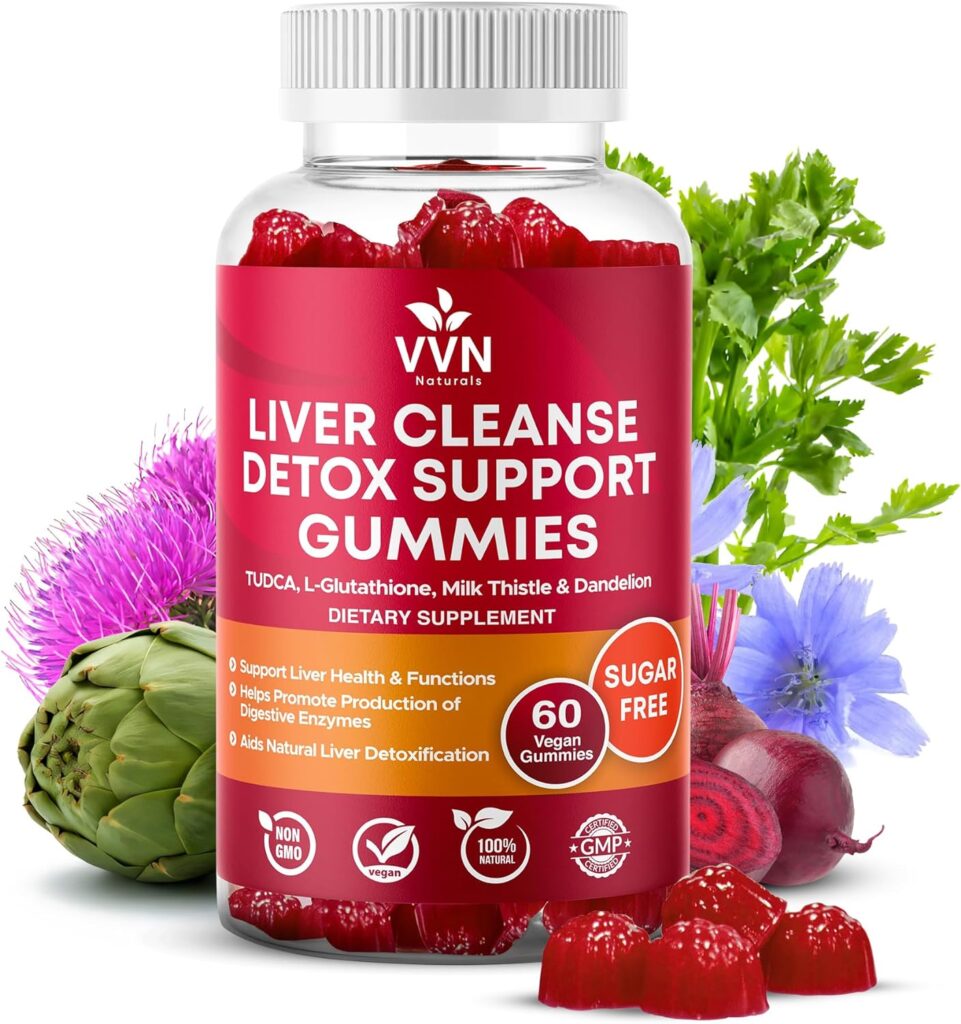Hepatic steatosis, commonly referred to as fatty liver disease, is a condition characterized by the accumulation of fat in liver cells.
This condition can be caused by various factors, including excessive alcohol consumption, obesity, and metabolic disorders.
If left unaddressed, hepatic steatosis can lead to more severe liver complications, such as inflammation and cirrhosis.
Understanding the causes and implementing supportive measures is crucial for managing this condition.
In this post, we are going to explore 5 ways to support hepatic steatosis.
Let’s dive in!
What is Hepatic Steatosis?
Hepatic steatosis occurs when there is an excessive buildup of fat in the liver, affecting its ability to function properly.
This condition can stem from various factors, including obesity, high sugar intake, insulin resistance, and chronic alcohol use.
Symptoms are often minimal in the early stages, but over time, it can lead to liver inflammation, scarring, and more serious liver diseases if not managed effectively.
5 Ways to Support Hepatic Steatosis
1. Take a Liver Support Supplement
Liver support supplements containing milk thistle and glutathione can be beneficial for individuals with hepatic steatosis.
Milk thistle is known for its active compound, silymarin, which has antioxidant properties that help protect liver cells from damage and support liver function.
Incorporating a liver support supplement into your daily routine can enhance liver detoxification and promote recovery.
My personal favorite liver support supplement is VVN’s Liver Cleanse Detox Support Gummies.
These gummies are an excellent choice for liver support due to their comprehensive formula designed specifically to address fatty liver concerns.
Each gummy contains a potent blend of ingredients, including milk thistle seed extract, L-glutathione, and artichoke, which work together to detoxify and repair liver damage while promoting overall liver function.
With a focus on convenience, these sugar-free gummies make it easy to incorporate vital liver support into your daily routine, ensuring you get the necessary nutrients for optimal liver health.
Simply take two gummies per day and you’re good to go!
2. Follow a Balanced Diet
A balanced diet is essential for supporting liver health.
Consuming nutrient-dense foods helps provide the vitamins and minerals needed for liver function and recovery.
Focus on whole foods, including plenty of fruits, vegetables, whole grains, and lean proteins.
Foods rich in antioxidants, such as berries and leafy greens, can help combat oxidative stress in the liver.
3. Stay Hydrated
Proper hydration is crucial for liver function and overall health.
Alcohol and certain dietary choices can lead to dehydration, making it crucial to maintain adequate fluid intake.
Aim to drink at least 8-10 glasses of water daily.
Herbal teas and electrolyte-rich beverages can also help maintain hydration and support liver health.
4. Limit Alcohol Consumption
Limiting or eliminating alcohol consumption is one of the most effective ways to support hepatic steatosis.
Reducing alcohol intake can significantly improve liver health and prevent further fat accumulation.
Consider setting personal limits on alcohol consumption or exploring abstinence.
Engaging in support groups or therapy can also be beneficial for those struggling with alcohol use.
5. Engage in Regular Physical Activity
Regular physical activity can help reduce liver fat and improve overall health.
Exercise promotes weight loss, enhances metabolism, and supports liver function.
Aim for at least 150 minutes of moderate-intensity exercise per week.
Activities such as walking, swimming, or cycling can be effective ways to stay active and support liver health.
Support Your Hepatic Steatosis
Supporting hepatic steatosis requires a comprehensive approach that includes dietary changes, hydration, and lifestyle adjustments.
By taking a liver support supplement with milk thistle and glutathione, following a balanced diet, staying hydrated, limiting alcohol consumption, and engaging in regular physical activity, you can significantly improve liver health.
Early intervention and proactive measures are key to preventing the progression of fatty liver disease and promoting overall well-being.
And as always, consult with your doctor or physician when incorporating new supplements, diets, or lifestyle changes.
Thank you for reading!
Affiliate Disclosure
Some of the links on this site are affiliate links. This means that if you click on the link and purchase the item, we may receive an affiliate commission at no extra cost to you. I only recommend products or services that I believe will add value to my readers, however some (not all) do pay us to be on this blog. Your support and theirs helps keep this blog running, and I genuinely appreciate it.
Medical Disclaimer
The information provided on this website is for educational purposes only and is not intended as medical advice. This blog or the writer is not a licensed healthcare professional, and the content should not be used as a substitute for professional medical diagnosis, treatment, or advice. Always consult with your physician or other qualified healthcare provider before starting any new treatment or making any changes to your healthcare routine.
